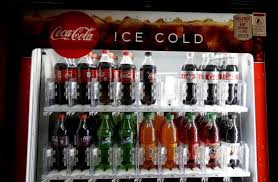Source: washingtonpost.com
A new paper in the International Journal of Environmental Research and Public Health this week found that the Coca-Cola Company’s public relations goals included trying to shift teens’ sense of the health impacts of drinking sugary soda.
Obesity rates for children have tripled since the 1970s, an increase that puts children at greater risk of diabetes, heart disease and other health problems. The 2015-2016 National Health and Nutrition Examination Survey found 18.5 percent of kids ages 2 to 19 were obese. In the United States, childhood obesity is estimated to cost $14 billion annually in direct health expenses.
Rates of obesity among adults are even worse: In 2007, 33.7 percent of American adults were obese. The most recent estimates approach 40 percent, according to the American Medical Association.
The paper, produced by Australia’s Deakin University and U.S. Right to Know, a nonprofit consumer and public health group, includes another Coca-Cola document, a request for proposal for a campaign called “Movement Is Happiness.” Its public relations goals included “to increase Coke brand health scores with teens” and to “cement credibility in the health and well-being space.”
Countries such as Mexico, Chile and Brazil have pushed back against sugary sodas legislatively, enacting sugary drink taxes and limiting marketing and advertising directly to kids.
Gary Ruskin, co-director of U.S. Right to Know, says after reviewing thousands of pages of requested documents from Coca-Cola, some themes emerge.
“One of these is Coca-Cola’s efforts to evade responsibility for the global obesity epidemic,” he said by phone. “Even though the health problems are quite severe in the U.S., we live under de facto corporate control; the food industry is incredibly powerful in the U.S. What’s insidious here is a health campaign that is using tobacco’s tactics, promoting alternative science in a way that advances the notion that sugary sodas aren’t really so bad for people’s health.”
Ruskin says Coca-Cola is intentionally targeting a vulnerable population.
Kent Landers, vice president of public affairs and communications at the Coca-Cola Company, says these internal documents predate Coke’s 2016 commitment to discontinue funding physical activity programs. He says Coca-Cola has repositioned itself as a “total beverage company” with products that include water, juice, juice drinks, tea, coffee, sports drinks and energy drinks as well as sodas.
“At Coca-Cola, we recognize that too much sugar isn’t good for anyone,” Landers said. “That’s why, around the world, we are reducing the amount of sugar in our products and taking other steps to help people reduce their sugar intake. In fact, in 2017-2018, we eliminated 425,000 tons of sugar from our global portfolio of products through innovations such as new recipes, smaller packs and wider availability of low- and zero-sugar products.”
In the “Movement Is Happiness” internal document, which dates to 2013, there is a commitment to offer low- or no-calorie beverages in every market, to provide transparent nutrition information, and to not pitch advertising to children under age 12.
Benjamin Wood, a PhD candidate at Deakin University and one of the study’s authors, says the documents show how explicit Coca-Cola is in targeting teenagers and that younger populations are not immune.
“We wanted to raise awareness of these hidden tactics and strategies to target teenagers and their mothers,” Wood said. “Coke also uses the recruitment of role models for young children.”
Ruskin points to Coca-Cola’s powerful and far-reaching political apparatus as an impediment to enacting good sugary drink policy.
“There’s a global effort from policymakers and public health people across the world trying to grasp the … effect of ultra-processed food on human health,” he said. “It’s a weapon of mass destruction.”
